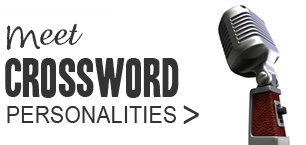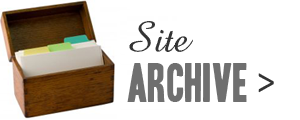
Read on to know more about Brian as he talks with us about some of his most special puzzles, reflects candidly on his stint as crossword editor, and tells us about his link with India.
Q1. When and how did you get interested in crosswords?
Brian: I can’t remember exactly, but when I was growing up in Ireland, we played many games in my family, and from my early teens I solved crosswords quite often.
Q2. How did you get into setting crosswords?
Brian: I was walking past the offices of Varsity, the student newspaper at Cambridge, in 1964, and noticed they were asking for someone to contribute crosswords. I thought “I could do that” and I did. They weren’t very good, but they did use some interesting themes. A few years later, now working at Queen’s University in Belfast, I contributed crosswords to a political magazine called Fortnight. I remember one for St. Patrick’s Day in the shape of a shamrock.
In 1975, after a probationary period contributing to Games and Puzzles, I was taken on to the Times team.
Q3. Which publications do you currently set for?
Brian: I set the cryptic every Sunday in The Telegraph, and about two a month for The Guardian (as Brendan) and The Times. Because of time pressure (see below) I reluctantly stopped contributed themed puzzles (as Virgilius) to The Independent a few years ago. I have set three puzzles so far for The New York Times.
My first book with Puzzazz (www.puzzazz.com), which makes puzzle books electronically available, was a collection entitled Across and Down the Guardian Path with Brendan.
Q4. You’ve not only been a crossword setter but also the crossword editor for The Times and The Independent. How was your experience in these roles?
Brian: In retrospect, I was a very bad editor for The Times in some respects. In particular, I changed contributors’ clues way too much (earning from one the nickname “The Mutilator”), and did not give sufficient feedback. I think I did a reasonably good job in maintaining standards, and I was very careful to avoid clues that might inadvertently prove offensive in any way. One of the first decisions I took was to eliminate clues in which the answer was the word missing from a given quotation, which are not cryptic clues in my book. I particularly stressed making the surface structures as natural as possible. One of the most time-consuming aspects was answering letters from solvers, though these were often very interesting. I also had to turn down a lot of approaches from would-be setters. Since I had been in that position myself, I was polite, but most of their efforts were very bad.
I didn’t operate very differently at The Independent. However, their modus operandi made it possible for setters to create their own grids instead of working within a fixed set as is the case with The Guardian, Times, and Telegraph. I don’t see why this limitation should be necessary given current technology – it makes construction of themed puzzles much more difficult.
I enjoy excellent working relationships with my current editors, Phil McNeill at the Telegraph, Richard Browne at the Times, and Hugh Stephenson at the Guardian.
Q5. I'm curious about the letters you received as crossword editor. What were they like?
Brian: I’m not an organised person, so I don’t have a file of crossword memorabilia, just a box filled with miscellaneous stuff. Many of the letters expressed appreciation, welcome of course; others pointed out errors, whether simply blunders or matters of expert technical terminology. Naturally most came from the United Kingdom, but others from all parts of the world, often relating to crosswords in other languages – Czech, Japanese, and so on. Particularly amusing were the letters that speculated about the nature of the setters (by tradition, in The Times, they are anonymous), invariably way off the mark. Others commented on changing times, usually with a heavy dose of nostalgia. Often I responded to letters in the weekly 300-word article I contributed for about two years.
Q6. How do American cryptics compare to British ones?
Brian: As far as my experience goes, American cryptics operate under much stricter rules than British ones. Clues fall into the most common types, whereas in British crosswords, there is latitude to invent new clue types. The style seems to be pretty well defined by the Random House Guide to Cryptic Crosswords by Emily Cox and Henry Rathvon. Oddly, the cryptic definition kind of clue (for example: Great shot by American player (7)) is not allowed.
British cryptics allow much more latitude and, consequently, variation in styles. Often this results in a trade-off between creativity and precision. Araucaria of The Guardian, still going strong in his 90s, is particularly known for his wit. (He recently announced a diagnosis of his cancer in one of his crosswords).
Q7. How challenging is it to adapt your crosswords to suit different publications/audiences?
Brian: I have never found this to be a problem. Generally, different publications/audiences have been happy with what I offer. I have taken on some interesting commissions. For example, I provided the crossword requested by the family of Ian Fleming to mark the centenary of his birth on May 28, 1908, which appeared in The Times. Another personalised puzzle was published on the 60th wedding anniversary of a couple who always began the day doing the Times crossword together.
The puzzles most radically different from the general run are the seven or so I contributed to The Listener some time ago. Of all genres of crossword, those in the Listener have been the most difficult, complex, and very varied. In the old days, some were in Greek, or had numerical solutions. One of mine led to a bridge problem which then had to be solved. Another (“Coexistence”) had a barred diagram and a blocked square diagram occupying the same grid.
I’ve also just published a book of non-standard puzzles with Puzzazz under the title Off the Beaten Path with Virgilius.
Q8. If you had to pick two clues or puzzles of your own that you are proud of, which would they be?
Brian: I contributed a puzzle to The Listener in which every clue had two alternative, cryptically indicated, answers. For example, the clue:
Transport flier from here – it gives harassed flier help going round (8)
The answers are CAROUSEL (CAR = transport, OUSEL = flier) and AIRFIELD (anagram of FLIER in AID).
Another favourite was the 45x45 puzzle I completed in three days to commemorate the 60th anniversary of The Times crossword (in which the first regular daily puzzle appeared on February 1, 1930). I was particularly tickled to find a quotation with 45 letters, clued as:
Pooh’s reason for difficulty with this puzzle (1,2,1,4,2,4,6,5,3,4,5,6,2)
One clue I am proud of, because it elicited a congratulatory postcard from Colin Dexter, creator of Inspector Morse, was:
For whom right and wrong can go in ledger (9,5)
[Answers at the end of the interview]
The first time I won the prestigious Azed clue-writing competition was for a clue for CHARADES, which was the theme of a Christmas Azed puzzle:
They may be made up by dear Azed each Xmas (deduction of first and second parts required) (8)
Q9. Which crossword setters do you most admire?
Brian: I actually have little time to solve puzzles these days. I do the New York Times puzzles over coffee each morning Monday-Thursday and Sunday, and there have been some delightful themed puzzles, one on the subject of the Fibonacci sequence particularly sticking in my memory. Will Shortz, Crossword Editor for the New York Times and much else, is an amazing all-round puzzle expert, and a really nice guy. I also used to really enjoy the puzzles in Harper’s by Ed Galli and Richard Maltby Jr. – somewhat similar in style to The Listener, but a lot easier.
Earlier, I admired Jonathan Crowther (Azed) and Mike Laws, who succeeded me as editor at The Times. I still interact frequently with Don Manley, who has written arguably the best book on cryptic crosswords, the Chambers Crossword Manual, and has been a long-time friend and inspiration.
Q10. How do you come up with your wonderful themed puzzles?
Brian: It’s getting harder, as all the low-hanging fruit has long gone. I look for literary or artistic subjects (e.g. Romeo and Juliet, Gilbert and Sullivan – nothing I would consider obscure), for groups of words with interesting properties (e.g. those which can have opposite meanings, such as “screen” which can mean either “show” or “hide”), messages hidden in the unchecked letters around the periphery of some grids, topical events (Ireland winning the Grand Slam for rugby in 2009, for example). Sometimes I adapt an idea I have seen in a New York Times puzzle.
Working within the restraints of a finite set of Guardian grids is quite difficult. I do a lot of work on the grids to avoid having to include obscure words – when this is unavoidable, I make sure the clue is easy.
Q11. Which crossword software/tools/references do you use?
Brian: Like most setters, I think, I use Crossword Compiler, which handles a lot of the routine clerical work, and is particularly useful for find what words are available to fit with a given pattern of letters already entered. It also makes finding anagrams very easy, which saves much time, but removes the pleasure of independent discoveries, such as STARTING PRICE for RACING TIPSTER. The software is an extremely useful tool, but the really creative work still goes on in the wetware between my ears. (Some years ago, an ill-conceived attempt was made at the Telegraph to have computers create the puzzles from banks of clues; it was short-lived and gave rise to much hilarity).
I use Chambers, the Concise Oxford, and Collins as my main dictionaries, plus a couple of thesaurei, backed up by more specialist reference books such as the Oxford Companion to English Literature. The online dictionary and thesaurus on my Mac is a handy first resort. The Chambers Crossword Lists is useful, particularly for themed puzzles.
Q12. You have sometimes set crosswords themed on politically sensitive/controversial issues, and these have produced extreme reactions from solvers. Did you anticipate this sort of response?
Brian: I have occasionally revealed my left-wing views in crosswords. (For some of my views on crosswords, mathematics education, and politics, you can watch this video). Like many people, I allowed myself to hope that Barack Obama was significantly different and I composed a puzzle in 2008 that had the words BARACK OBAMA FOR PRESIDENT concealed in it. It was initially accepted for the New York Times, then Will Shortz remembered that the crosswords cannot endorse a candidate, so it appeared in The Independent. I have since been very disillusioned by President Obama, most notably over the use of drones and his acceleration of the corporatisation of education, and had a puzzle in The Guardian that was critical of him receiving the Nobel Peace Prize. Later I poked fun at the Republican primary candidates in the last presidential campaign, comparing them to circus clowns. In retrospect, this was inappropriate – circus clowns are people who provide entertainment without doing anyone any harm. The complaints I had were silly, I thought, since the Guardian’s political position is no secret.
Q13. Please tell us about your India connection.
Brian: In 1995, I met my wife, Swapna, who grew up in Calcutta, and has been in the US for some time, completing her PhD at Syracuse University and then becoming a university teacher. Crosswords figured prominently in the courtship – on our wedding day in Seattle, I was interviewed on the subject on the local radio station. Swapna now is a Full Professor in Education at Portland State University, and we work together a lot in our common field, namely mathematics education. Since 1997, we have been in Calcutta every year. I particularly enjoy going to the bookshops in College Street and dropping in to the Indian Coffee House. My mother-in-law was a keen solver of Bengali crosswords.

Picture 1: Swapna and Brian

Picture 2: Brian's mother-in-law engrossed in a Bengali crossword.
Q14. When you’re not solving/setting crosswords, what do you do?
Brian: When Swapna moved to Portland State, I was still working at San Diego State University, but after a couple of years also moved to Portland. Despite not securing a position here, I continue my work on mathematics education, which mainly consists of polemical writings. I very much enjoy the freedom that this situation affords, and Portland is a great city in which to live. Our main interests are travel, movies, music, art, and books, and we have a cat, Gulabi Phutki (Pink Dot), with a remarkable personality.

Picture 3: Brian with their cat Gulabi Phukti. His tie matches her colour!
Q15. Any memorable crossword-related experiences you’d like to share?
Brian: Through crosswords, I have gotten to know some very interesting people. Colin Dexter, already mentioned, is a crossword fan, whose characters (starting with Morse and Lewis) bear the names of cruciverbalists. There’s even an episode of Morse with a character called Greer.
I was very happy that one of my favourite authors, Julian Barnes, was pleased when I featured him and his books in a Guardian puzzle. I enjoyed the crossword competitions run by The Times, first as a competitor, later as editor. Three times I’ve participated in the American Crossword Puzzle Tournament, which is a weekend of unashamed ludic indulgence, and recently I went to my first convention of the National Puzzlers’ League, which is even more so.
Q16. Parting words:
Brian: In a world that has gone crazy, crosswords offer a small piece of life that can be rendered perfect and complete and offers innocent enjoyment with significant intellectual stimulation. I hope to continue setting them for many years while my brain holds out.
------------------------------------
Answers to clues from Q6, Q8:
Great shot by American player (7) LINCOLN cd
"Great" has to be read as a noun, "shot" as a verb. Plus, "player" can be a sportsman or an actor - Lincoln's assassin was an actor.
Pooh’s reason for difficulty with this puzzle (1,2,1,4,2,4,6,5,3,4,5,6,2) I AM A BEAR OF VERY LITTLE BRAIN AND LONG WORDS BOTHER ME cd
For whom right and wrong can go in ledger (9,5) RECORDING ANGEL; R + (CAN GO IN LEDGER)*, &Lit
Related Posts:
- Meet Crossword Personalities: A compendium of interviews with crossword setters and solvers.
- Wordplay (DVD): Review of a documentary centered on the 2005 American Crossword Puzzle Tournament
- Fascinating facts about setters' pseudonyms
If you wish to keep track of further articles on Crossword Unclued, you can subscribe to it in a reader via RSS Feed. You can also subscribe by email and have articles delivered to your inbox, or follow me on twitter to get notified of new links.








 Follow on Twitter
Follow on Twitter Join us on Facebook
Join us on Facebook Get RSS
Get RSS

1 comment
Hi Shuchi
Thanks for a wonderful interview! Brendan, one of my role models for themed puzzles, is the best I have seen among setters who set thematics consistently. Besides being clever and original, his puzzles steer clear of obscure words in general (and that is the biggest challenge there).
While most of his published works are some sort of feats, the best for me is this mathematically themed puzzle. Not only does he achieve a >95% themed gridfill, he gets there simply with words that do not surpass the realm of high-school maths!
Post a Comment